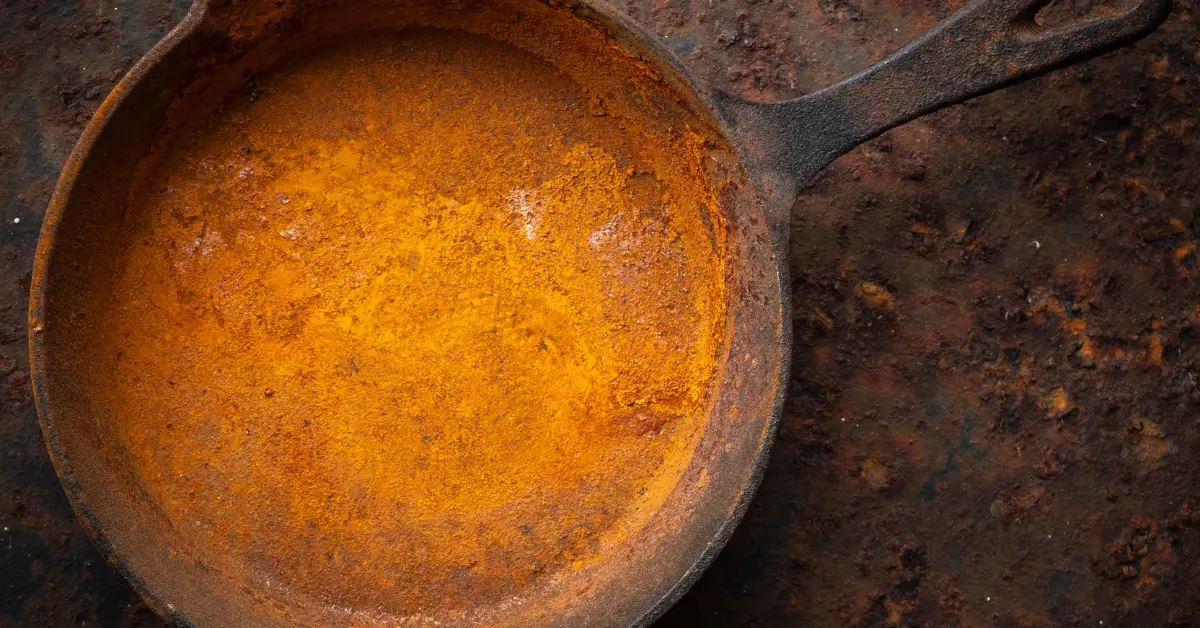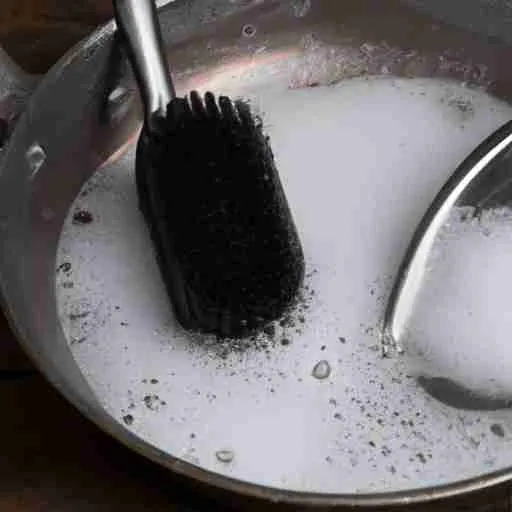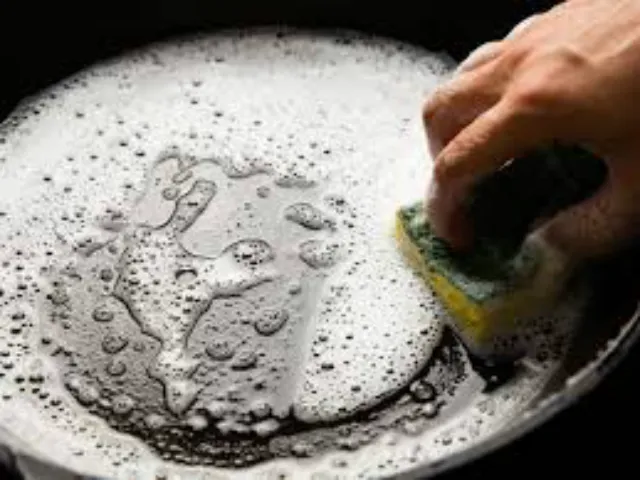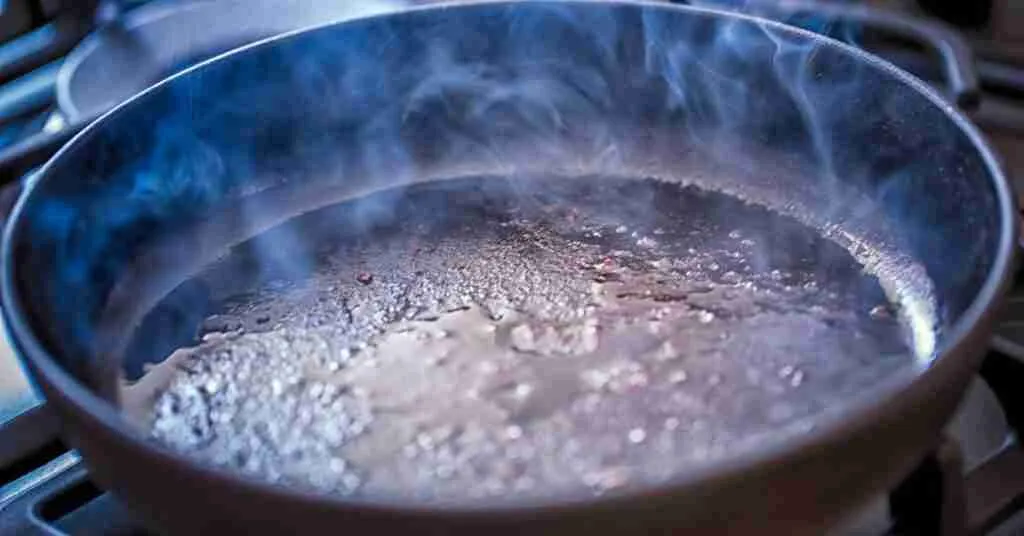Cast iron cookware has been a staple in kitchens for centuries. Known for its durability and even heat distribution, it’s a favorite among chefs and home cooks alike. But one question that often arises is: does salt damage cast iron? In this article, we’ll delve deep into this topic, exploring the effects of salt on cast iron and providing insights on how to care for your beloved cookware.

Table of Contents
The Science Behind Salt and Cast Iron
Salt, chemically known as sodium chloride, is a mineral that’s essential for many biological processes. However, when it comes to metals, salt can be a double-edged sword.
Salt can accelerate the oxidation process, leading to rust. When salt comes into contact with water, it forms an electrolyte solution. This solution can facilitate the movement of electrons, promoting the oxidation of iron in the cast iron. Over time, this can lead to the formation of rust, which can degrade the quality of the cast iron.
However, it’s essential to note that the occasional contact of salt with a well-seasoned cast iron skillet is unlikely to cause immediate damage. The protective layer of seasoning acts as a barrier, preventing the salt from directly interacting with the iron.
Cleaning Cast Iron with Salt: Pros and Cons
Many people swear by the method of cleaning their cast iron skillets with salt. The coarse texture of salt acts as a natural abrasive, helping to remove stuck-on food particles without the need for soap. And, this is good for cast iron how?
For a visual demonstration of cleaning cast iron with salt, check out this video:
Pros:
- Natural and chemical-free.
- Effective in removing food residues.
- Doesn’t strip away the natural seasoning of the skillet.
Cons:
- It can be abrasive if used too frequently.
- Excessive salt left on the skillet can lead to corrosion if not properly rinsed.
Relevant Links
For further reading and insights, here are some relevant articles:
- How to Clean a Cast Iron Skillet with Salt
- The Importance of Seasoning Your Cast Iron
- Cast Iron Maintenance and Care Tips
The Verdict: Is Salt Safe for Cast Iron?
In moderation and with proper care, salt can be safely used with
Does Salt Damage Cast Iron?
In the first part of our exploration into the relationship between salt and cast iron, we delved into the science behind their interaction and discussed the pros and cons of cleaning cast iron with salt. In this continuation, we’ll address some frequently asked questions on the topic and provide more insights to help you make informed decisions about your cast iron care.
FAQ
Can I use table salt to clean my cast iron skillet?
Yes, table salt can be used as an abrasive to clean your cast iron skillet. However, it’s essential to rinse the skillet thoroughly after cleaning to ensure no salt residues remain, which could lead to corrosion.
How often should I clean my cast iron with salt?
While salt is an effective cleaning agent for cast iron, it’s best used occasionally or when there’s stubborn residue. Regular cleaning with just water and a soft brush is often sufficient for daily maintenance.
Does salt affect the seasoning on my cast iron?
Salt itself won’t strip away the seasoning on your cast iron. However, the abrasive nature of salt can wear down the seasoning over time if used excessively. It’s essential to re-season your skillet as needed to maintain its non-stick properties.
I left salt on my cast iron overnight. Is it ruined?
Not necessarily. If you notice any signs of rust or corrosion, clean the skillet thoroughly, remove any rust spots, and re-season it. Regular maintenance can help prevent further damage.
Are there alternatives to salt for cleaning cast iron?
Yes, there are several alternatives to salt for cleaning cast iron. Baking soda, coarse cornmeal, and even potato slices can be used as natural abrasives. Always ensure to rinse and dry your skillet thoroughly after cleaning.
Can I use sea salt instead of table salt for cleaning?
Yes, sea salt can also be used for cleaning your cast iron skillet. The coarser grains can be particularly effective for scrubbing away stubborn food residues. However, the same precautions apply: rinse thoroughly after cleaning.
Does the type of salt matter when cleaning cast iron?
The type of salt can make a difference in the cleaning process. Coarser salts like kosher salt or sea salt are generally more effective as abrasives than fine table salt.
Is it safe to cook acidic foods in a cast iron skillet?
Acidic foods like tomatoes can react with the iron, especially if the skillet is not well-seasoned. This can lead to a metallic taste in the food and potential damage to the skillet’s seasoning.
Can I use salt to season my cast iron pans?
While salt is not typically used for seasoning, some people do use a salt rub to help remove any remaining residues before applying oil for the seasoning process.
How do I prevent salt from damaging my cast iron?
The key is moderation and thorough cleaning. If you use salt as an abrasive cleaner, make sure to rinse it off completely and dry the skillet immediately to prevent rusting.
If you have other questions, check out our frequently asked questions page for more practical tips and tricks.
In conclusion
Does salt damage cast iron? While salt can be a useful tool in the care and maintenance of cast iron, it’s essential to use it judiciously. Proper care, cleaning, and regular seasoning can ensure that your
With this information, you should be well-equipped to make informed decisions about using salt with your



